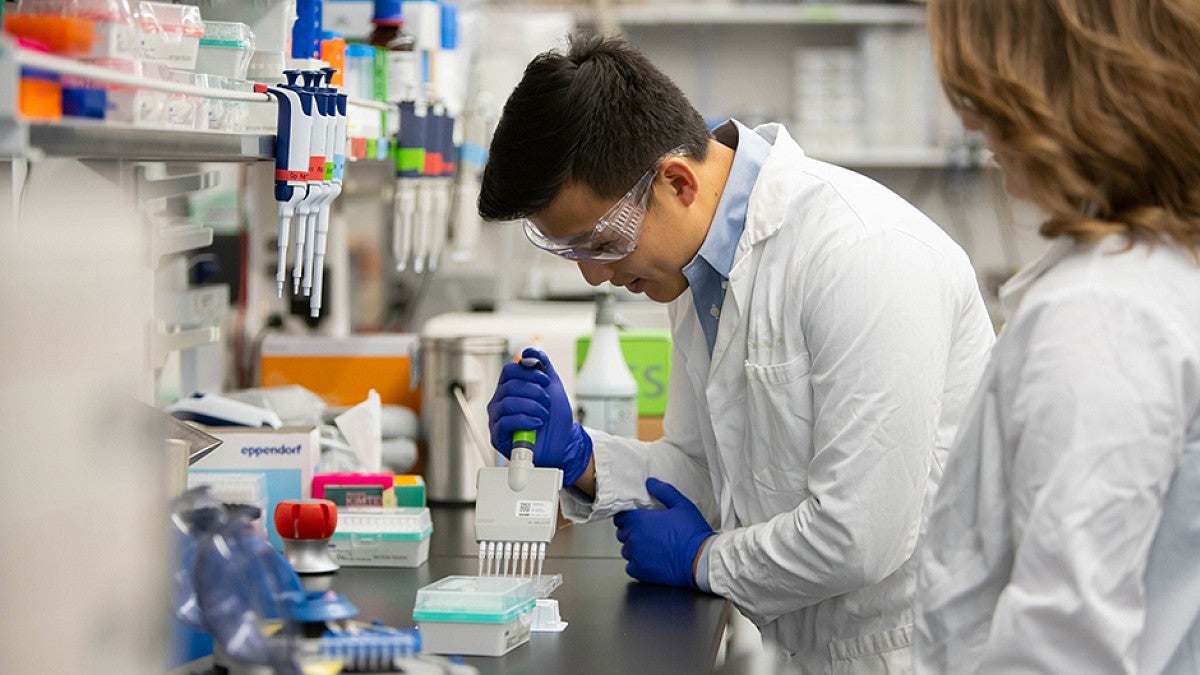The University of Oregon’s Phil and Penny Knight Campus for Accelerating Scientific Impact and PeaceHealth announced today a joint center for biomedical research, initially focused on facilitating clinical need-based research collaborations and supporting careers of underrepresented scientists and engineers.
The Center for Translational Biomedical Research will forge biomedical research collaborations that produce increased research grant funding, journal publications and translation of new medical technologies. Postdoctoral fellowships for candidates from underrepresented communities in science and engineering mark the center’s first effort.
“The Knight Campus and PeaceHealth are forming a powerful partnership that can have a tremendously positive impact on the Pacific Northwest and the West Coast,” said Robert Guldberg, vice president and Robert and Leona DeArmond Executive Director of the Knight Campus. “This initial joint effort demonstrates our deep commitment to improving diversity and inclusion in science and engineering through targeted recruitment and mentorship of underrepresented scientists and engineers at pivotal points in their career paths.”
This is the first collaboration of its kind between the Knight Campus and PeaceHealth, which operates four medical centers and more than 15 primary/specialty care clinics in Lane County, as well as facilities in Washington and Alaska.
“This is an extraordinary partnership that provides much-needed opportunities for underrepresented populations in the fields of science and medicine,” said Todd Salnas, chief operating officer of PeaceHealth’s Oregon network. “This initial effort represents our shared vision of not only promoting diversity and inclusion within our community but also enhancing the quality of life of our community members through the development of advanced treatments. We look forward to many more collaborative efforts with the Knight Campus.”
The Knight Campus will recruit two fellows to work with UO faculty members and PeaceHealth providers on mentored independent research with a clinical emphasis in the PeaceHealth medical domains.
The fellowship offers support tailored to the development of postdoctoral scientists and engineers from underrepresented communities, as defined by the National Science Foundation. While scientific themes will evolve over time, the focus will remain on training individuals whose interests are grounded in the interface of clinical and applied science.
“PeaceHealth physicians will provide clinical perspective on currently unanswered questions and unmet health care needs, as well as enhanced networking for careers in the biomedical research field,” Guldberg said. “These are critical elements to career success.”
Postdoctoral fellows will participate with faculty and physician mentors on developing research grant proposals. The involvement of physicians as part of interdisciplinary teams on research projects will strengthen funding proposals by demonstrating clinical relevance, Guldberg said.
As part of the program, fellows will engage in Knight Campus professional development training with an emphasis on innovation and entrepreneurship, societal impact, career mentoring and science communication. Fellows also will have the opportunity to mentor undergraduate and graduate students at the Knight Campus.


